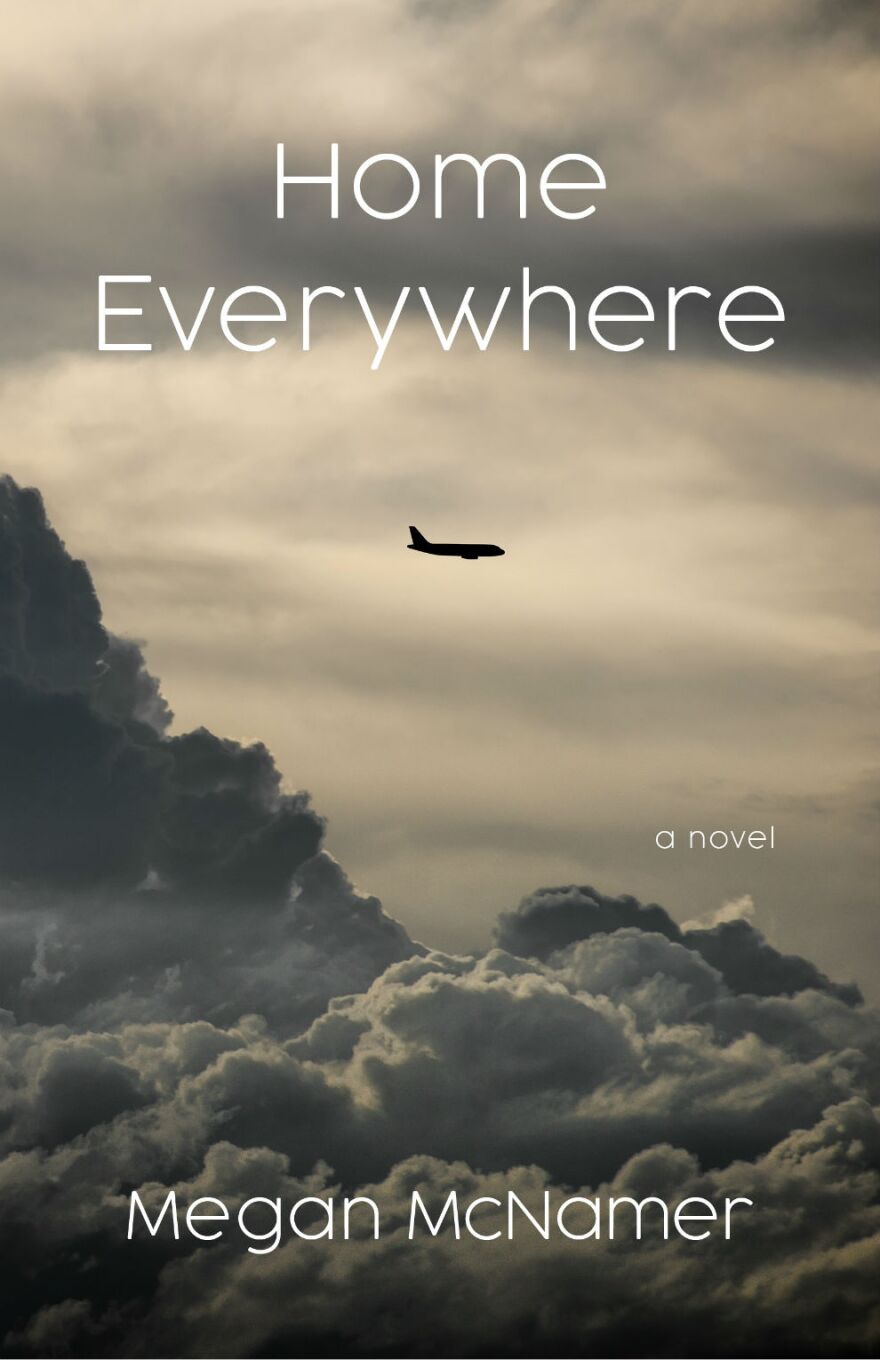Home Everywhere is a suitcase full of souvenirs scavenged from lives liberated, briefly, from the cares of the world. A random collection of tourists embarks on a ten-day budget trip to parts unknown. The parts are destined to stay that way, while the tourists fixate on the actions and trappings of being alive. In the tradition of pilgrims across the ages, they seek spiritual salvation, physical healing, alluring accessories, and good bargains. Soon their sacred places emerge as elusive versions of home. Private sorrows persist. The daily itinerary holds hints of escape, but in the end, gravity prevails, and they head back to normal life, hopes unrealized and undiminished, their secret dreams following in the jet stream.

The following highlights are from a conversation with Megan McNamer about her novel, "Home Everywhere." To hear the full conversation, click the link above or subscribe to our podcast.
Sarah Aronson: What kind of a tourist do you think you are?
Megan McNamer: Oh. That's a good question, because of course, we all want to say we're not really tourists. We're kind of travelers and sojourners, and those other people with the shopping bags and whatnot are the tourists. But I'm a pretty unabashed tourist, and what kind am I? I try to be sort of invisible. I like that feeling of being lost in a crowd, and having really an anonymous face. I don't know why I like that. It just gives me a great feeling of solitude, that I had not so much when I'm just all alone.
Home Everywhere follows a group of confused tourists visiting an unnamed country in Asia, and tells how they got there and where they think they're going. The book is a suitcase full of souvenirs scavenged from lives liberated briefly from the cares of the world. Megan, at one point, one of your characters says, "All journeys start with an anxious pain of doubt. You suddenly feel an orphan." I wanted to ask you, how did the book come to be, and when you began the book, did you feel that anxious pang of doubt?
Well, truth to be told, not really. I always feel a real exciting jolt of just a thrill when I'm taking off on a trip. You know, I kind of think we're all confused tourists, as human beings, and we are sort of born homesick. We do a rather amazing job of constructing worlds to live in, whether it's how we run countries or how we park our cars, and kind of accepting that as a norm. What I love about travel is suddenly, your normal is the exotic, and you get that sense by traveling elsewhere and seeing they don't do things the same in Cairo, or Kalamazoo for that matter, and when you return, you suddenly see your own life as this arbitrary, really assortment of priorities and details. I just love that.
How did you come up with the characters and the places for the book?
Well, some of these characters, I'd been keeping company with before I wrote this book, and then I didn't know what to do with them. They were hanging around, and in my drawers, and then I went on this trip. I actually went on a trip to a named Asian country, it was Thailand, with my aunt and uncle. It was a name tag guided tour, and the whole thing was just a total lark. It was totally fun, and I just felt a great kind of love for this group of people, because they were so willing to do what really, objectively, is a very outrageous thing, to shoot yourself through the ozone at many hundreds of thousands of miles of speed, whatever it is.
This was right before 9/11, so of course, terrible things have been happening on the Earth since it was populated by humans, but that sense of planes disappearing over the Indian Ocean, or things changing on a dime one morning, for me, were not quite real. I'd heard all about them for World War II. Vietnam was a long slog, so that sense of... I think somewhere in the book, there's a phrase of a gazillion shoes ready to drop, and I felt that, and I always feel that when I travel. You sort of fall into a sleepy mode in your daily life, and it excites me and makes me love other people more to get up close to it through travel.
About the Book:
Home Everywhere is a suitcase full of souvenirs scavenged from lives liberated, briefly, from the cares of the world. A random collection of tourists embarks on a ten-day budget trip to parts unknown. The parts are destined to stay that way, while the tourists fixate on the actions and trappings of being alive. In the tradition of pilgrims across the ages, they seek spiritual salvation, physical healing, alluring accessories, and good bargains. Soon their sacred places emerge as elusive versions of home. Private sorrows persist. The daily itinerary holds hints of escape, but in the end, gravity prevails, and they head back to normal life, hopes unrealized and undiminished, their secret dreams following in the jet stream.
About the Author:

Megan McNamer’s first novel, Children and Lunatics (2016), won the Big Moose Prize with Black Lawrence Press. Her second novel, Home Everywhere , was published by Black Lawrence Press in 2018. She has won a number of awards with national literary magazines, including Glimmer Train, New Millennium, Carve Magazine and Cutthroat Magazine. Her essays can be found in Sports Illustrated, The Sun, and Salon magazine. She has degrees in Music (BA from the University of Montana) and Ethnomusicology (MA from the University of Washington). Her home is Missoula, Montana.
Copyright 2020 Montana Public Radio. To see more, visit Montana Public Radio. 9(MDIyMjUyODczMDE0NTMzMDcxODE2NTgwYQ000))


